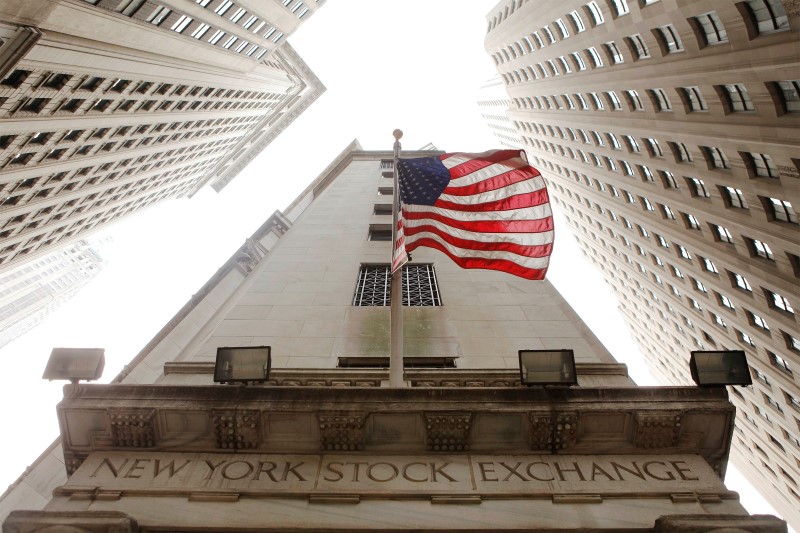By Noreen Burke
Investing.com - This week’s economic calendar is packed with data which will further demonstrate the extent to which the coronavirus pandemic has hit global growth. The U.S. is set to publish figures on retail sales and industrial production for April, while the UK and Germany are to release data on first quarter GDP. The data will fuel the debate on whether a rebound in the U.S. stock market is justified amid an unprecedented slowdown. Trade threats by U.S. President Donald Trump against China continue to be a source of worry for investors at a time when large swathes of the economy are at a near-standstill. Meanwhile, bitcoin is due to undergo the third halving in its 11-year history this week. Here’s what you need to know to start your week.
- U.S. data to underline steep drop-off in economic activity
Data on U.S. retail sales and industrial production for April due on Friday will further highlight the effect of closures on sales and factory output. Economists are expecting retail sales to have tumbled 11.6%, surpassing the record drop of 8.4% in March. Industrial production, which slipped 5.4% in March, is forecast to fall 11.5%.
There will also be numbers related to consumer sentiment and inflation while Thursday’s weekly report on initial jobless claims will cover the eighth week since widespread lockdowns came into effect. Last Thursday’s report showed that claims topped 3 million for a seventh straight week, but were off the peaks of 6.8 million seen in the week ended March 28.
Investors will also be watching a speech on Wednesday by Federal Reserve Chairman Jerome Powell on current economic issues at a webinar organized by the Peterson Institute for International Economics.
- Trump’s trade threats
U.S.- China trade tensions look set to continue to simmer after Trump told Fox News Channel on Friday that he was "very torn" about whether to end the Phase-1 trade deal with China.
Trump’s administration is weighing punitive actions against Beijing over its early handling of the coronavirus outbreak, including possible tariffs and shifting supply chains away from China.
Trump has said he would terminate the trade deal if China fails to meet its purchase commitments. He said on Wednesday that he would know within a week or two whether that was possible.
The deal, which calls for Beijing to boost its purchases of U.S. goods by $200 billion over two years, only took effect on Feb. 15 as the coronavirus pandemic was unfolding. Lockdowns aimed at stemming the spread of the virus dealt a sharp blow to the Chinese economy and it is just now starting to recover.
- UK and German GDP to show initial virus impact
First quarter GDP numbers from the UK and Germany will give investors an initial sense of the economic fallout from the lockdowns which began in late March.
The UK economy is expected to contract 2.5%, but the full damage, taking in the second quarter, will be much worse. The Bank of England said last week it expects the UK economy to fall by 14% this year, its worst annual slump for more than 300 years, and the unemployment rate to reach 8% as the coronavirus crisis ravages the economy.
Meanwhile, the euro zone’s largest economy Germany is expected to shrink 2.1% in the three months to March and the government has said it expects an annual contraction of 6.3% this year, which would be the most since World War II.
- Divide between U.S. stock market, economy to widen
Recent economic data pointing to historic drops in activity is concerning to investors who worry that unprecedented stimulus from the Federal Reserve and U.S. government have led markets to shrug off the economy's massive slowdown.
The Labor Department reported Friday that the U.S. economy lost a staggering 20.5 million jobs that month, the steepest plunge since the Great Depression.
If economic data this week is worse than the already awful forecasts it could bolster the argument that the rally in stocks has gone too far. But it is too early to say whether it will derail a surge which saw stocks post their best monthly gain in three decades in April, despite weak economic data from the previous month.
Recent gains could fade if U.S. states need to unwind efforts to reopen their economies and unemployment fails to decline in coming months.
- Bitcoin's third 'halving'
Investors are widely anticipating Tuesday's bitcoin halving, the third in the digital currency’s 11-year history. The previous two bitcoin halvings propelled massive rallies in bitcoin's market value, but there is a wildcard this time in the form of the coronavirus pandemic, some analysts said.
"From an efficient market perspective, any fundamental reaction to the halving should be heavily priced in at this point; after all, it's hard to imagine a more predictable event than an unalterable supply reduction that has been scheduled for more than a decade in a liquid, heavily-traded ... asset," said Matt Weller, global head of market research at GAIN Capital.
Bitcoin's technology was designed in such a way that it cuts the reward for miners in half every four years, a move meant to keep a lid on inflation.
In the run-up to this week's halving, bitcoin had surged almost 40% since the beginning of the year and climbed more than 80% from its lows.
--Reuters contributed to this report
